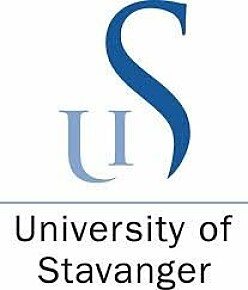This article was produced and financed by University of Stavanger - read more

Norwegian teenagers loved trying to make sense of Kafka in Norwegian class
Complex literature is appealing to teens, according to a new study. Young teenagers have a lot to offer when they have to read and understand difficult literature without being aided by the teacher, claims researcher Margrethe Sønneland.
Margrethe Sønneland still remembers a class from her time as an English language teacher at a Norwegian high school. It had been a long week. She had started to grow tired of trying out various teaching methods, of trying to engage the 16-year old pupils, who were convinced that their English was already good enough. In a combination of resignation and irritation, she handed out the poem The Like Isle of Innisfree by William B. Yeats.
“OK, let’s see if you can work this one out, then, since you apparently all excel at English,” she remembers telling them.
“I will arise and go now, and go to Innisfree, And a small cabin build there, of clay and wattles made …”
Something happened in the classroom that day. The pupils worked in a rare combination of quiet concentration and intense discussions. At the end of the session, they came up to her, commenting on how much they had enjoyed it. Slightly stunned, Sønneland asked herself what had just happened.
"All I did was hand out the poem. I did not contextualise it, I did not tell them anything about the poet or when it was written. I did not explain difficult words or metaphors."
Several years after this episode, Sønneland recently defended her Ph.D. thesis in literacy studies at the Norwegian Reading Centre, University of Stavanger. Her topic of research: Pupils’ encounters with difficult literature, in this case in Norwegian L1.
She now realises what actually happened in her English classroom. It had to do with the human desire to understand.
When the classroom was “on fire”
Partly inspired by her own experience, Sønneland has investigated a similar phenomenon in four different Norwegian L1 classes. She asked ordinary Norwegian 13- and 14- year old pupils to read texts by Franz Kafka (Before the Law), Raymond Carver (Little Things) and Roy Jacobsen (Run for Your Life). Short stories that are so complex and complicated that even university literature scholars keep coming up with new readings and analyses.
Sønneland’s only instruction to the pupils was that they were to try to work out the meaning of the texts. One could easily think that this was a very ambitious assignment to give junior high school pupils.
However, the researcher repeatedly observed the same phenomenon as she had in her own classroom years ago: The pupils quickly and eagerly became involved in the task.
"In one classroom, it was as if the classroom virtually was on fire. In others, the engagement was of a more quiet character. However, we made the same observation across all four classes: The pupils were drawn to the task, and in particular, towards trying to solve the difficult or incomprehensible aspects of the short stories", she says.
Humans want to solve problems
The reason for this engagement, Sønneland believes, is that problems are appealing to humans. She is inspired by the American scholar James Paul Gee, who studies the learning potential in computer games.
"Problem-solving is an essential part of good computer games. Complex literature may carry some of the same appeal. Literature offers plenty of difficulties, from new words and novel concepts, to challenges on a different level altogether."

"Hang on a minute. You are saying that the pupils did not receive any so-called pre-reading strategies. Are you saying that these strategies, which have been talked about for years, are useless?"
"I receive this question all the time! I obviously do not think that we should stop instructing altogether. There is nothing wrong with the intention of providing help when we assume something is complex or hard to grasp. However, we have to ask ourselves what should come first. The starting point when we teach literature should be the encounter between the pupil and the text. Then, we can bring out the didactics. By doing it this way, the pupils will understand that all these words and concepts we talk about, are simply tools that help us pinpoint and talk about our experiences when we read literature."
Talked about allegories without knowing the word
In her dissertation, Sønneland offers an example of how this way of teaching literature can take place in a normal classroom. She asked 9th grade pupils, meaning 15-16 year olds, to read and discuss “Before the Law” by Franz Kafka.
"I asked the teacher how she would usually go about doing this kind of assignment. Just as I would have done, when I used to be a teacher, she told me she would have started with explaining challenging words. In Norwegian, the word for “Law” sounds similar to the Norwegian word for “Barn”, so she would have made sure that the pupils knew the difference. Then, she would have contextualised the story, talked about metaphors, and so on. However, we agreed that we would not do any of these things. Well, it turned out she was right. The first thing the pupils did, was trying to work out whether the story dealt with the law or a barn. However, it did not take long for them to settle that issue in cooperation. Then, they went straight on to discussing why on earth the protagonist was sitting before the law, and what the law was a metaphor for. They talked about the story as an allegory, without knowing the word "allegory."
But is there a risk that this way of teaching literature may favour those pupils who already do well in school and who come from homes that promote reading and literature?
"An interesting finding is that pupils who were characterised as “weak” by the teachers also became involved. A reason for this may be that the texts were hard to understand for all the pupils. In combination with the open-ended instruction, this may have made them all feel more equal. If the instruction is very controlled, however, the teacher risks favouring the “good” pupils, those who have understood how the teacher thinks. This may also lead to yearly repetitions of the teacher’s interpretations of the literature read in school."
Pupils as thinking persons
Sønneland urges teachers to be careful with trying to predict what their pupils may find difficult, interesting or meaningful, when selecting literary texts and educational methods.
"It is actually very difficult to know, in advance, what pupils will find difficult, which questions they may have, and even what kinds of experiences they bring with them. Sometimes, we are not aware of these things before we encounter something that activates a particular experience, she says."
"Also, the pupils need to be stimulated intellectually. They need to experience the “kick” you can get when you work something out. I think that understanding something can also be an aesthetic experience."
Sønneland reminds us that pupils are thinking human beings.
"Today’s pupils need to be educated to solve the problems in the world. Their education should not deprive them of the opportunity to experience actual difficulties and challenges."
Inspired by mathematics
The idea behind Sønneland’s study is partly inspired from the subject of mathematics in schools. She believes that although many pupils think maths is difficult, most acknowledge its content and methods.
"I have an impression that teachers often hear the question “what’s the point” when it comes to the Norwegian L1 subject. We have made a huge mistake if this is the case. Norwegian L1 can offer a myriad of uncertainties and problems. There are so many things we are unsure of, or that we do not know how to understand. This is not only the case with literature, but also when it comes to language. I have a strong suspicion that we are not exploiting the opportunities we have in Norwegian L1."
Authentic problems
A unique aspect of teaching literature in schools is that pupils may encounter authentic problems at an early age.
"In some of the other subjects, such as mathematics, pupils are not really able to encounter the hard problems, the ones that are dealt with in universities. However, my observations show me that when it comes to literature, the pupils deal with the same problems as scholars do. Some of the pupils in my study suggested interpretations that, as far as I am aware, have not been discussed by scholars. This is an authentic experience. The pupils get to use their thinking skills and contribute to new interpretations, and they can add new insight to the reading of literature."
Some may object that the engagement Sønneland observed was a result of her presence in the classroom. Can a normal teacher expect the same thing to happen in a business-as-usual setting?
"I have heard the argument that my presence had a particular effect. For me, this is a foreign way of thinking about knowledge in the classroom. If you think about it, you are saying that there are situations in life where people come together that are controlled, that are un-interrupted. However, communication and meetings between people are always changeable; the human existence is in itself interrupted, so to speak. An evidence of this is that two lessons in the same class in school are never identical. I can never control all the factors that deal with “input” and “output”, luckily. What I am able to get, however, is knowledge on what happened given the situation – the way it played out there and then. Also, the pupils could easily have dismissed the assignment and sabotaged the entire class. But they didn’t. Four times, they didn’t."
Learning can not always be measured
Previously a teacher herself, Sønneland is familiar with the day-to-day reality in schools. When she presents her findings to teachers, many are concerned with how this way of teaching literature can be aligned with official learning benchmarks.
"This is a big and important question, which is hard to answer. However, I wish the question would rather deal with how this way of teaching may contribute to creating subjects and autonomous pupils. We cannot accept a situation where we think that if something cannot be measured in education, it does not exist. Also: What is the point of school at all if it becomes a place where pupils are only taught what to think, rather than learning to think?"
———
Read the Norwegian version of this article on forskning.no


































